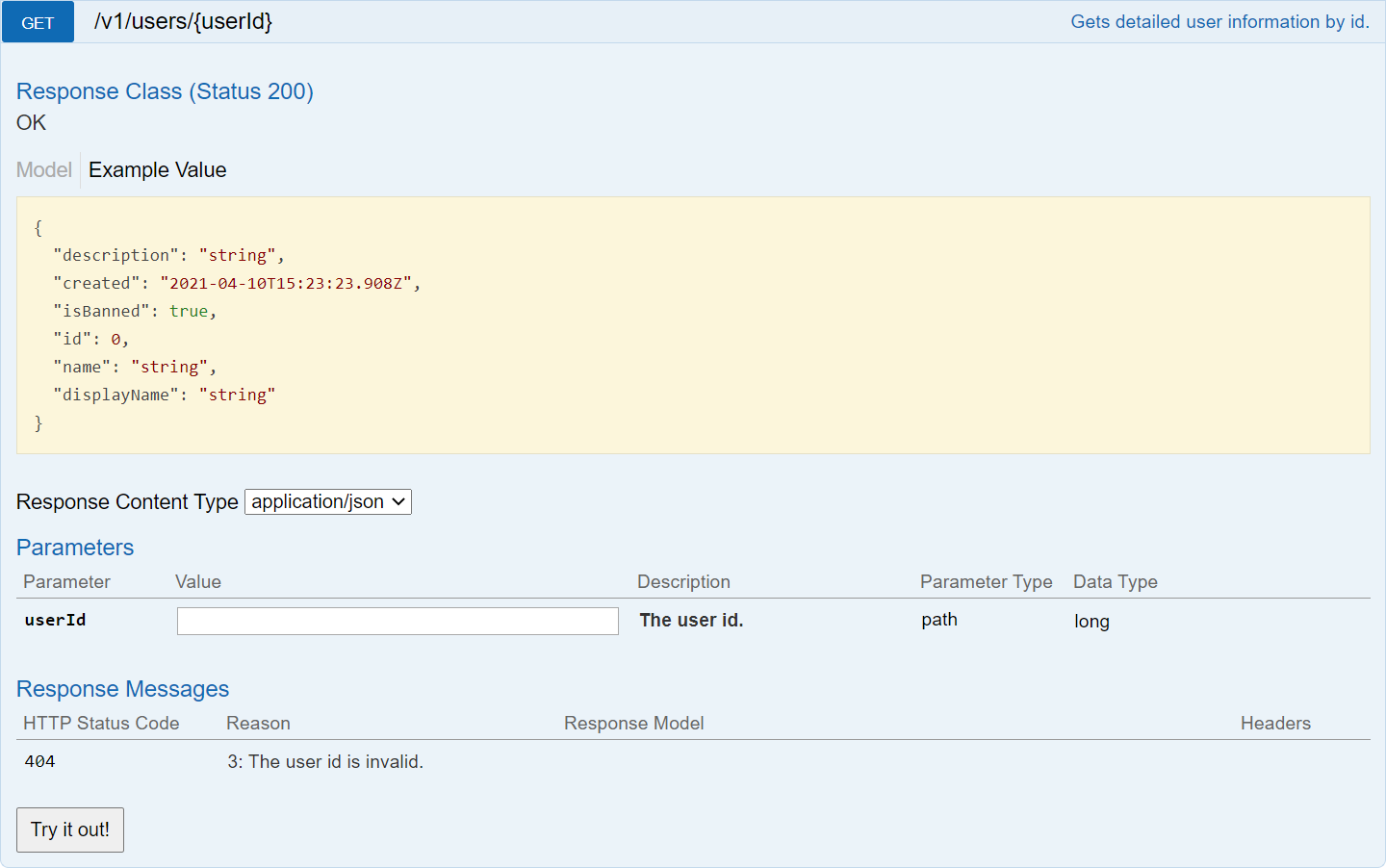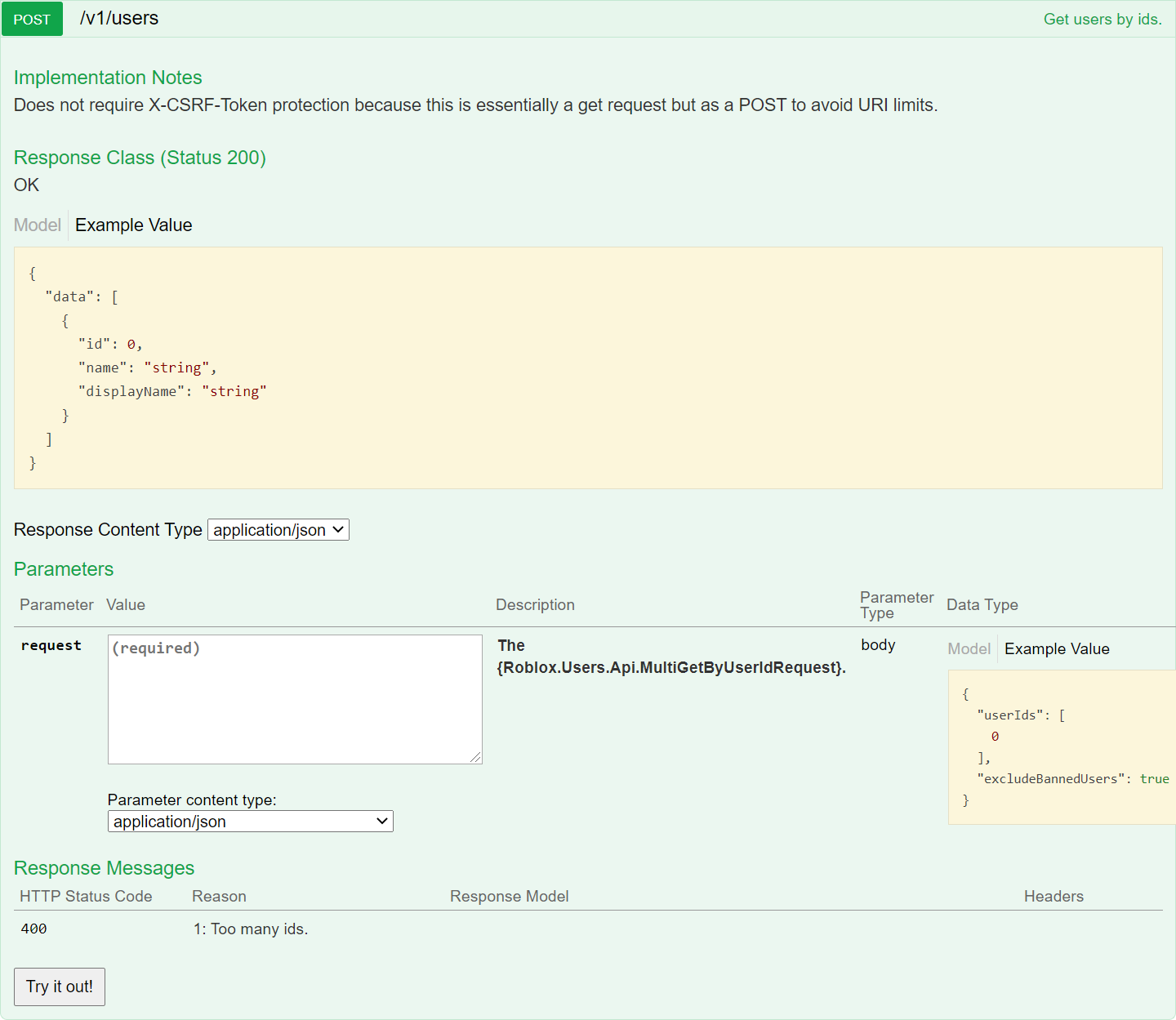Understanding documentation¶
Each documentation page contains a list of public endpoints available on that domain and information about how to use them.
Accessing documentation¶
The Roblox API is broken down into services, like users, groups, and friends. In general, each service has
endpoints that generally involve one main concept, like "user information" or "friend management".
Each service has a separate subdomain on roblox.com, like users.roblox.com or friends.roblox.com.
The documentation for that service is available via the /docs route, like https://users.roblox.com/docs.
Not all services have available documentation, and not all endpoints on those services are visible.
To find the service you need, see List of services.
Endpoint documentation¶

Documentation for all types of requests will always contain the following:
- The text in top left corner and the background color differ depending on the method of the request.
- Example Value contains an example of what the response from this endpoint might look like.
- Response Content Type determines what should be passed to the
Acceptheader. Usually you'll want this to beapplication/json. - Parameters determines what data is passed to the endpoint when sending the request. The Parameter Type determines how the parameter will be passed to the endpoint, like as a query string or as a part of the URL.
- Response Messages explain what different endpoint status codes mean when they are returned from this endpoint.
- The "Try it out!" button sends a request to this endpoint with the specified parameters.

Requests with a body, like POST, PUT, PATCH, and DELETE, have an additional parameter labelled request which contains
the request body.
You can also change the body's content type. In almost all cases this should remain set to application/json.
The "Example Value" contains an example of the data you should provide in the request body.
Clicking on that Example Value will set the body to the example data.
This is useful for quickly testing an endpoint before implementing it into your program.